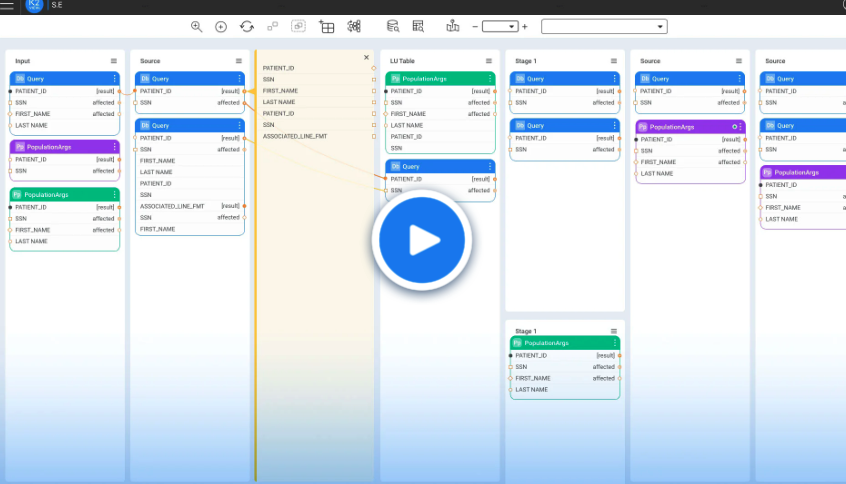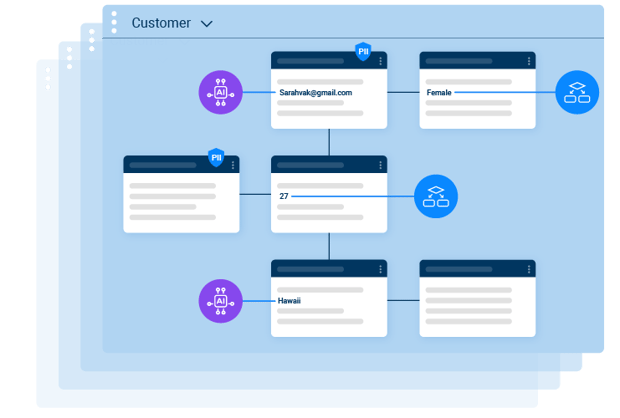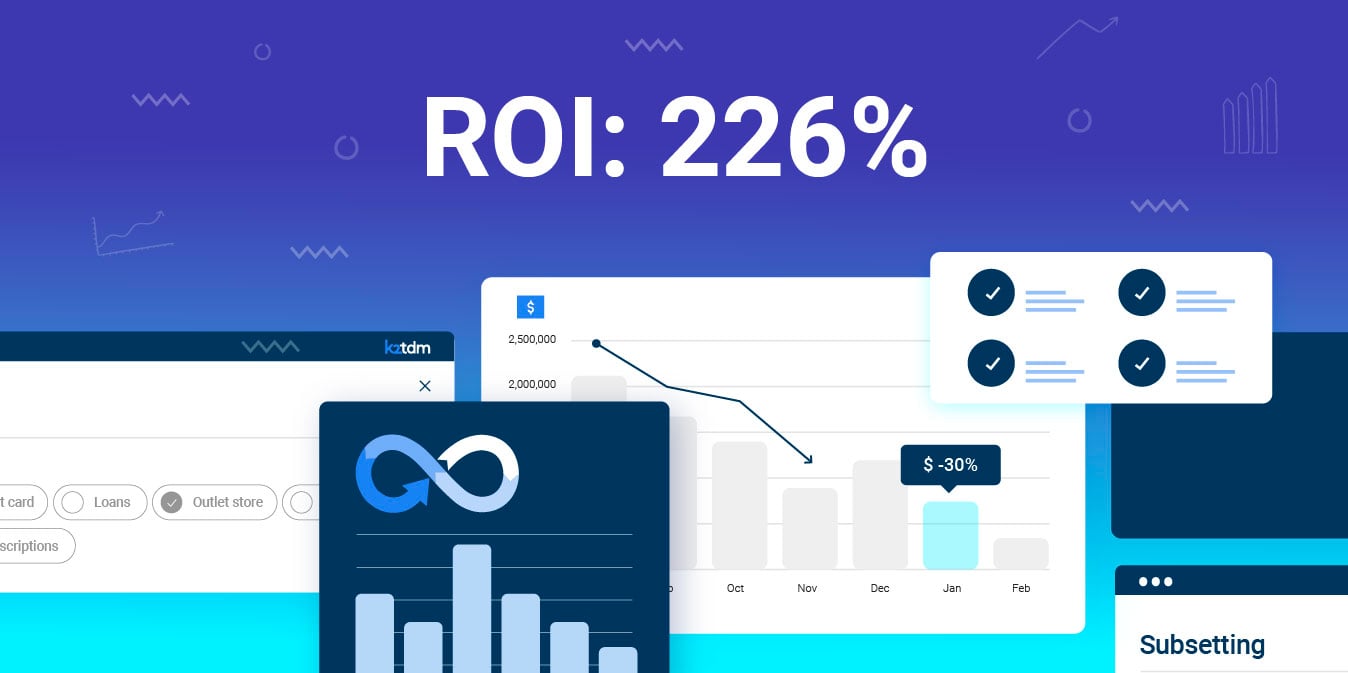Test data generator tool
Generate accurate and compliant test data
4 methods
of test data generation
Control how test data is created: Generative AI, user-defined rules, data cloning, or data masking.
Entity model
defines the data blueprint
Enforce referential integrity of the generated test data by applying a data model blueprint.
Self-service
via tester portal or APIs
Empower QA teams to generate test data, and for DevOps to integrate synthetic data into CI/CD pipelines.
The K2view test data generator tool creates test data by business entities – such as customers, devices, or orders – ensuring the test data for each entity is complete and contextually accurate.
The business entity data model is automatically discovered and classified, significantly reducing
the time and effort required to generate complete and compliant test data at enterprise scale.
Enterprise-scale test data generator
4 test data generation methods in 1 tool
1. Generative AI
Generate rich, production-like
test data that mimics real life
Use the test data generator tool's generative AI technique for creating synthetic test data when large volumes of production-like test is required, and when real data is insufficient or inaccessible.
-
Subset and mask production data for model training.
-
Invoke GPT AI model training based on the masked subset.
-
Apply business rules to augment AI models.
-
Review and provision the generated fake data to the target environment.
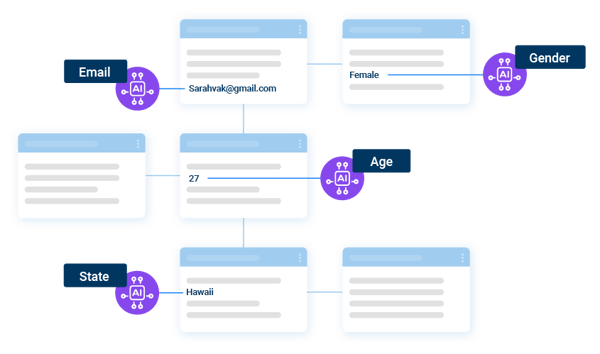
2. Rules engine
Create synthetic data for
testing new functionality
Use the test data generator tool's rules engine when testing new software functionality for which production data doesn’t exist, or for negative testing:
-
A data generation function is automatically generated for each business entity field.
-
Functions are customizable via no-code parameter-based business rules.
-
Testers can set test data parameters, such as min-max values, and data distribution methods.
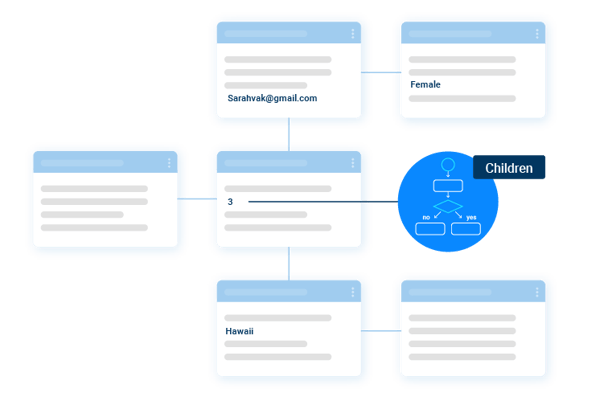
3. Entity cloning
Generate large test datasets
for load testing
Use the test data generator tool to clone data quickly and automatically generate large amounts of test data for performance and load testing, when the diversity of the test data isn't important.
-
A single business entity, with all its data, is extracted from the source systems, masked, and cloned.
-
Unique identifiers are generated for each cloned entity, based on customizable functions.
-
Cloned data is loaded into the target systems on demand.
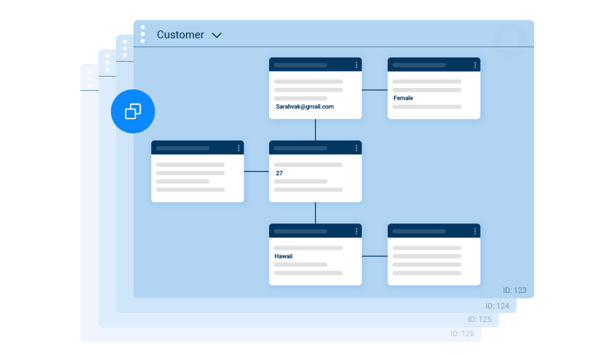
4. Data masking
Mask production data
to ensure compliance
Use the test data generator tool to mask sensitive data , ensuring that Personally Identifiable Information (PII) is never compromised, and that the relational consistency of the masked data is always preserved:
-
Auto-discover and auto-classify PII.
-
Automatically apply data masking logic based on data classification.
-
Mask data in-flight, as it's retrieved from the sources.
-
Apply dozens of prebuilt, customizable data masking functions to ensure compliance.
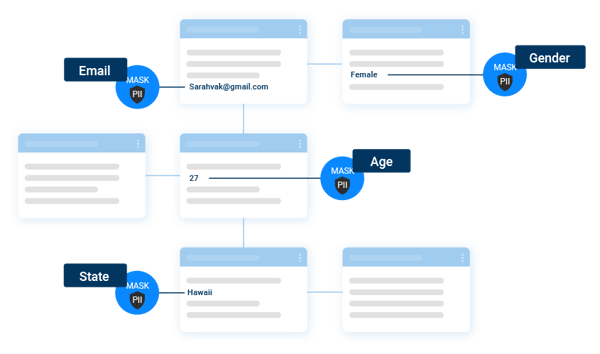
interactive product demo
Start your product tour
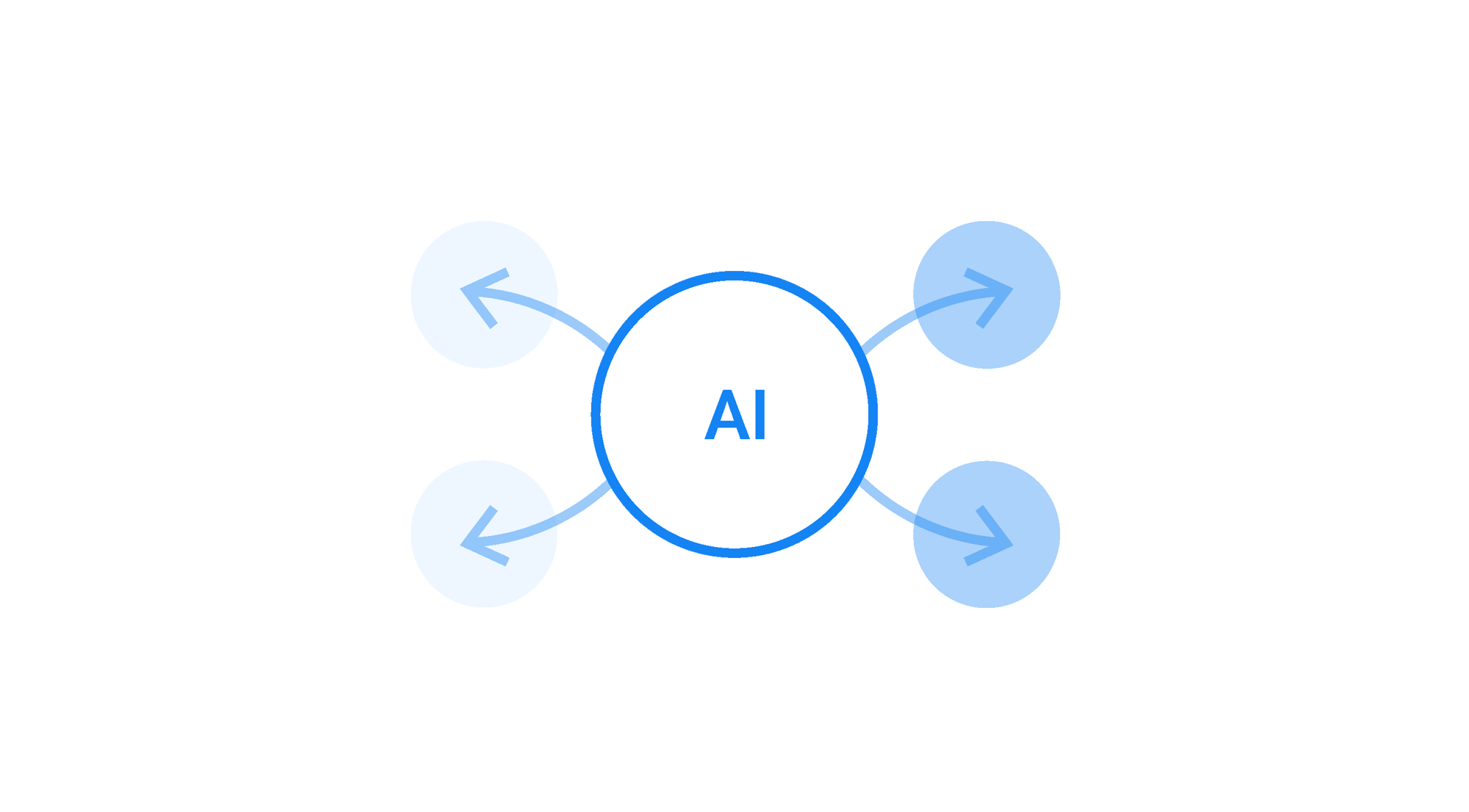
Test data generation
Create synthetic data for multiple systems based on user-defined business rules.
Test data generation

Data subsetting
Provision a data subset from multiple systems using business parameters.
Data Subsetting

Data masking
Anonymize production data in flight to ensure compliance with regulations.



